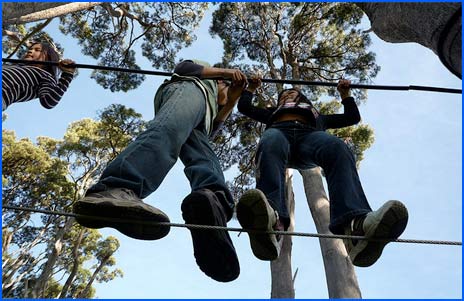When childhood obesity is seen through the psychological food dependence-addiction lens, it becomes obvious that diet and exercise are not all-important. They are necessary conditions to health, but they may not be sufficient conditions to health. The achievement of health might also require treatment for addiction.
Dr. Pretlow reminds us of the Early Bird Study, which is seen as a landmark in the field of childhood obesity. The person responsible was Professor Terrence Wilkins of the Peninsula Medical School in Plymouth, England. The result was surprising to some. As ScienceDaily interpreted the report, people make an incorrect assumption when they believe that inactivity leads to fatness. It could be just as true to say fatness leads to inactivity. Figuring out the difference could be crucial. The publication says:
This is the question EarlyBird was uniquely placed to answer. With data collected annually over several years from a large cohort of children, it could ask the question — which comes first? Does the physical activity of the child precede changes in fatness over time, or does the fatness of the child precede changes in physical activity over time?… And the answer, published recently in Archives of Disease in Childhood, was clear. Physical activity had no impact on weight change, but weight clearly led to less activity.
Dr. Pretlow says,
In light of the Early Bird study, I don’t feel exercise should be touted as a solution for childhood obesity. Likewise, we need to critically examine whether healthy eating promotion actually prevents childhood obesity or helps obese children lose weight.
It seems obvious that a healthful diet and a goodly amount of exercise make people skinnier. But just because the effects of diet and exercise can be seen in athletes, dancers, and others, does that mean diet and exercise are the whole picture? It’s similar to the basic problem of research on animals to predict the effects of substances on humans. While it may be the best method available, it is a mistake to forget that humans aren’t mice, rats, or even non-human primates.
To find ultimate meaning in connections between exercise, general fitness, and an absence of obesity, it’s necessary avoid assuming propositions that might not be so. Dr. Pretlow appreciates something that Professor Wilkins said at the 2012 European Congress on Obesity:
What is intuitive may not be true in practice.
One of reasons for this is that it depends on whose intuition. Many people intuitively feel that their fellow voters will simply not stand for government interference with the trafficking in chocolate-covered bacon. Yet concerned parents and officials try anyway to bring some order to the Wild West of food industry advertising, and one way to do that is by passing laws.
A person might have an intuitive feeling that what works for one person will work for everybody. That intuition, in practice, might prove to be fallacious, because people are not all the same. A lot of them are either prone to addiction and thus at risk, or already addicted to “PDFs” or psychological dependence foods, otherwise known as hyperpalatable food-like substances or junk food. Plenty of food addicts and recovering food addicts admit to it, and why would they lie about a thing like that?
Your responses and feedback are welcome!
Source: “Inactivity ‘No Contributor’ to Childhood Obesity Epidemic, New Report Suggests,” ScienceDaily,com, 07/07/10
Image by martinhoward (Martin Howard), used under its Creative Commons license.


 FAQs and Media Requests:
FAQs and Media Requests: 











